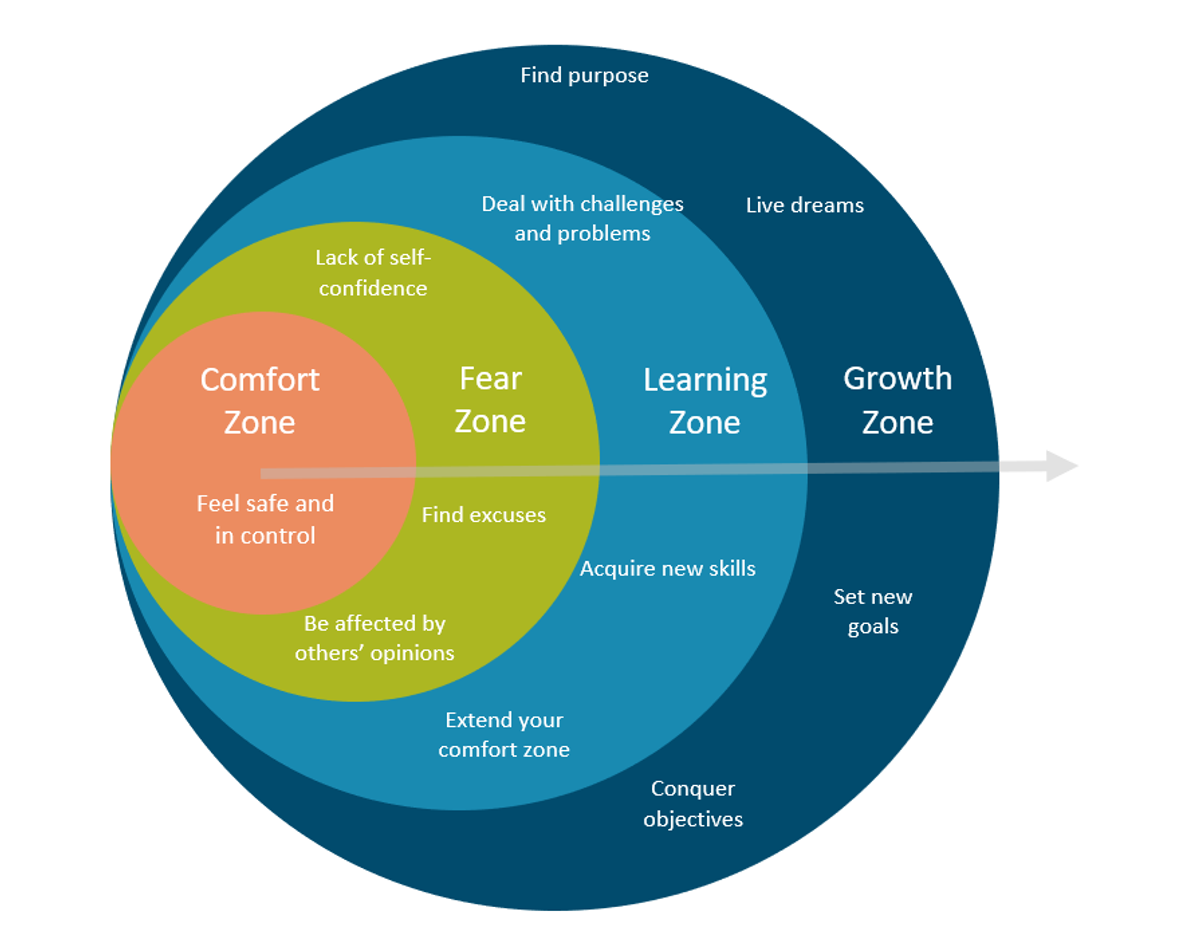Wellbeing

Fear of Failure & Stepping Outside our Comfort Zones
No one wants to fail. No one wants to feel like they have not achieved what they set out to accomplish. Life is full of situations that we cannot control and we are all, at some point, going to fall short of the expectations that we set for ourselves. Some of these short falls could be in the academic field, in social experiences or in our emotional management.
Fear of failure occurs when someone feels anxious or worried about not succeeding at anything in their day to day life. This fear can make them hesitant to try new things, avoid challenges, or feel upset when things don't go as planned. It's a normal part of growing up, but learning how to handle it can help build confidence and resilience.
A fear of failure is a common challenge that most children (and adults) face and it can often be linked to performance anxiety and low self-esteem, manifesting in different ways. For instance, they might draw blanks on tests, refuse to answer questions in class or become shy and reserved in certain situations.
A fear of failure can develop for many reasons, some of which being:
- Past negative experiences
- Pressure from external sources (family, friends, etc.)
- Societal pressure
- Perfectionism
- Unrealistic expectations
Child psychology researchers have shown that children generally tie their first conceptions of self-worth to how their parents respond to them and their successes or 'failures'. They might feel their parents won’t love or appreciate them as much if they don’t maintain high grades, superb athletic or artistic performance, perfect behaviour, etc. Naturally, this belief results in a fear of failure.
You can increase your child’s feelings of self-worth by making it clear that you love them unconditionally, even when they make mistakes or uses poor judgment.
Here are some strategies to help manage and reduce the fear of failure:
Normalise Mistakes: Teach that making mistakes is a natural part of learning. Share stories of how others have learned from their failures.
Focus on Effort, Not Just Results: Praise the effort put into tasks, not just the outcome. This encourages a growth mindset.
Encourage Trying New Things: Support your child in exploring new activities without the pressure of being perfect.
Model Resilience: Demonstrate how to handle setbacks calmly and constructively.
Provide Emotional Support: Acknowledge your child's feelings and offer comfort when they experience failure.
Set Realistic Goals: Help your child set achievable goals and celebrate progress along the way.
Below is a diagram that highlights how we can work to overcome our fear of failure and gradually push ourselves outside our own comfort zones.
As always, please feel free to reach out for more information about positive thinking strategies, growth mindset research or anything wellbeing related. I am contactable via compass, through the office or via email – louise.jarvis@education.vic.gov.au
Have a lovely weekend
Louise Jarvis
Wellbeing Specialist Teacher

